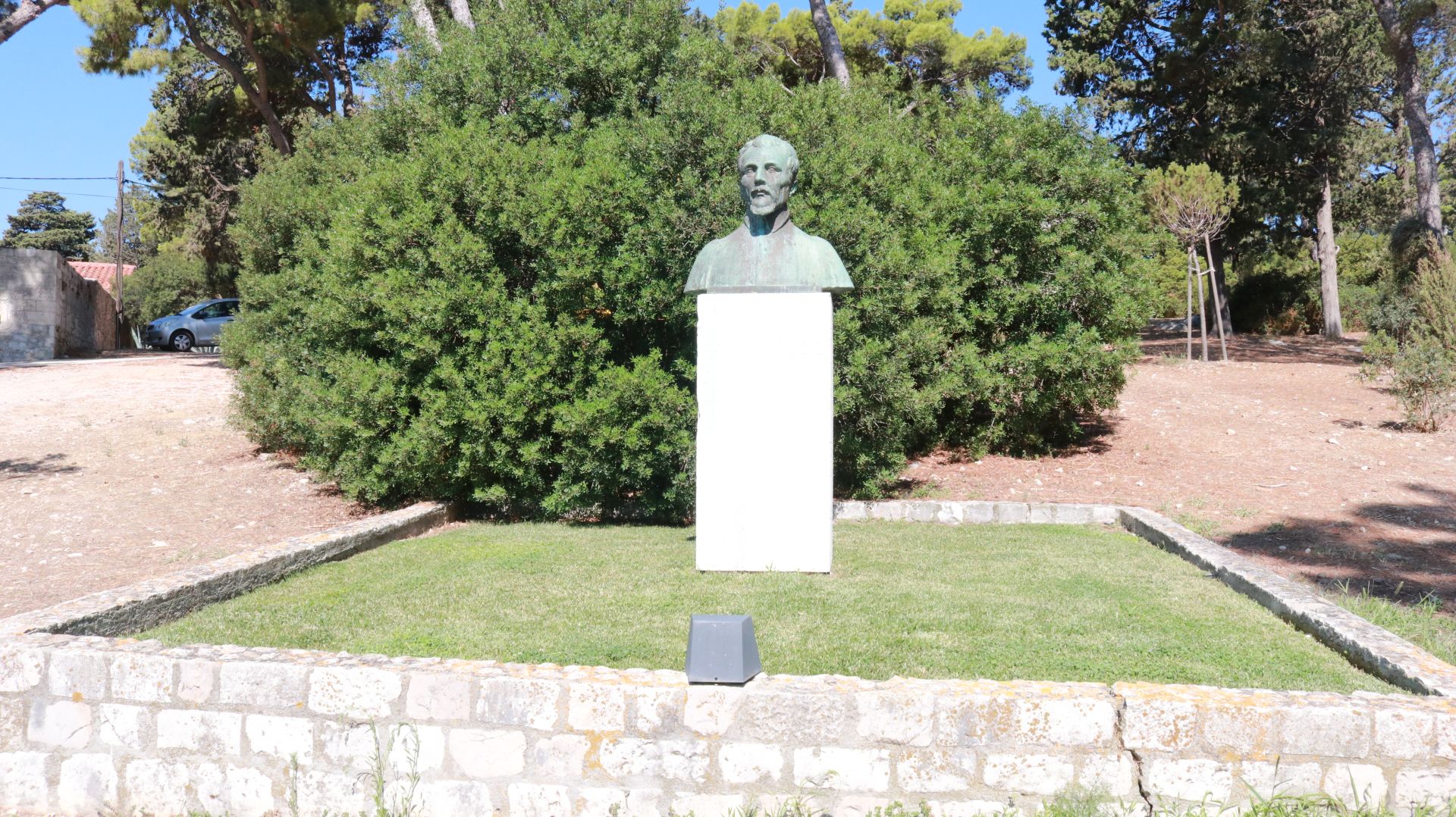Diaspora Ties Strengthen as Croatian Culture Week Proclaimed in Los Angeles
May the 24th, 2023 - On Friday, May the 19th, 2023, the Los Angeles City Council and Los Angeles County declared the first Croatian Culture Week in Los Angeles, in anticipation of the Croatian Statehood Day on May the 30th.
During this week, a series of events will be held, including the Croatian Heritage Night at the LAFC hosted by the Los Angeles Football Club (LAFC). LAFC will host Croatian Heritage Night when they take on the San Jose Earthquakes at BMO Stadium on Saturday night. Following the match, there will also be a special meet-and-greet session with two notable figures associated with Croatia: LAFAC forward Stipe Biuk, who moved to the club from Hajduk Split, and assistant coach Ante Razov, a first-generation Croatian-American.
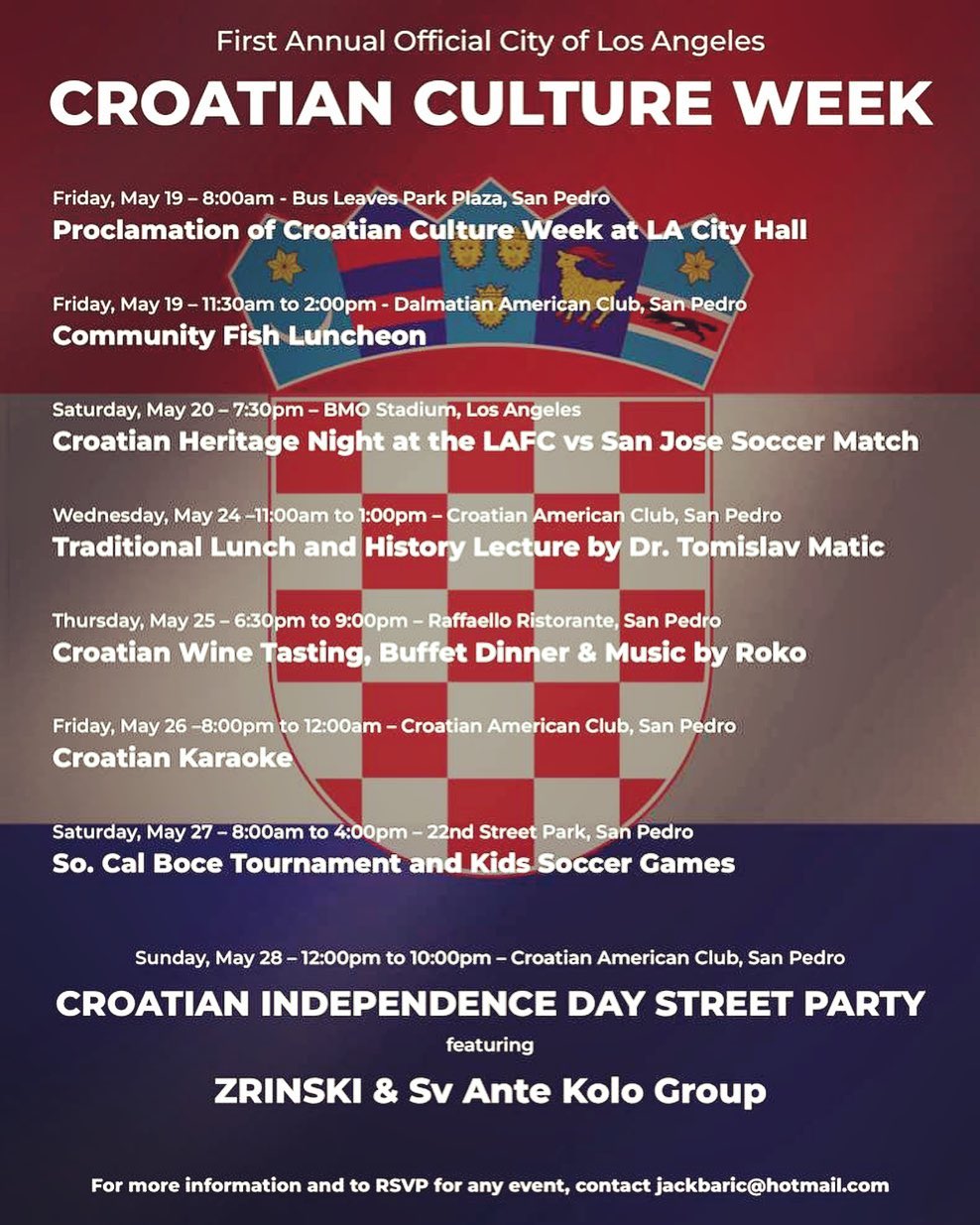
History Lecture by Fulbright Scholar Dr. Tomislav Matic titled “Four Centuries of Croats in America - Explorers, Adventurers and Visionaries” will be held on Wednesday. One of the key events during the week is the Croatian Wine Tasting & Dinner including music by Roko Blažević, who represented Croatia at the Eurovision song contest, scheduled for Thursday evening. There will be also Croatian Karaoke on Friday, as well as the first annual Southern California Croatian Bocce Tournament and Kids’ Soccer Games on Saturday.
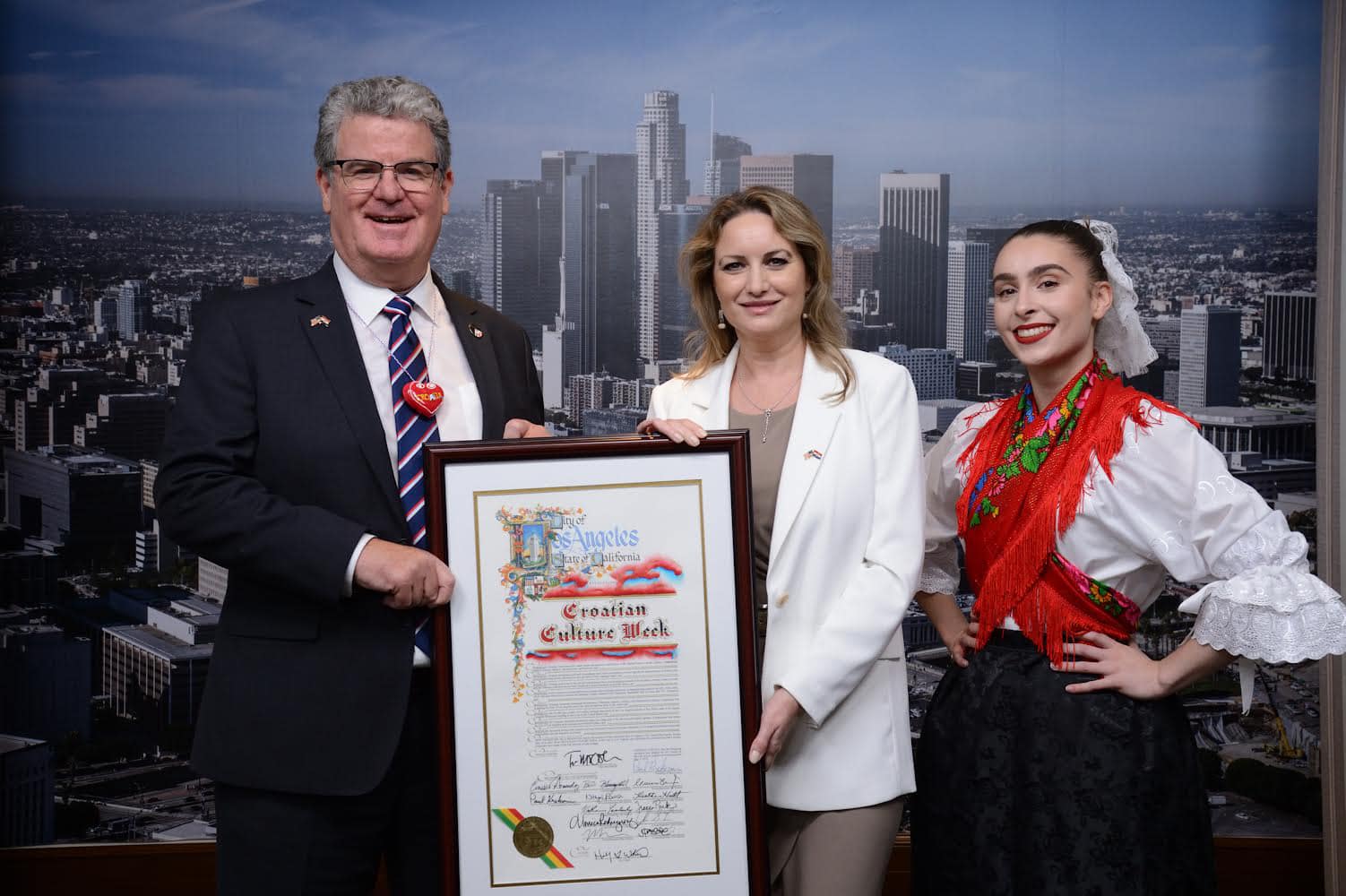
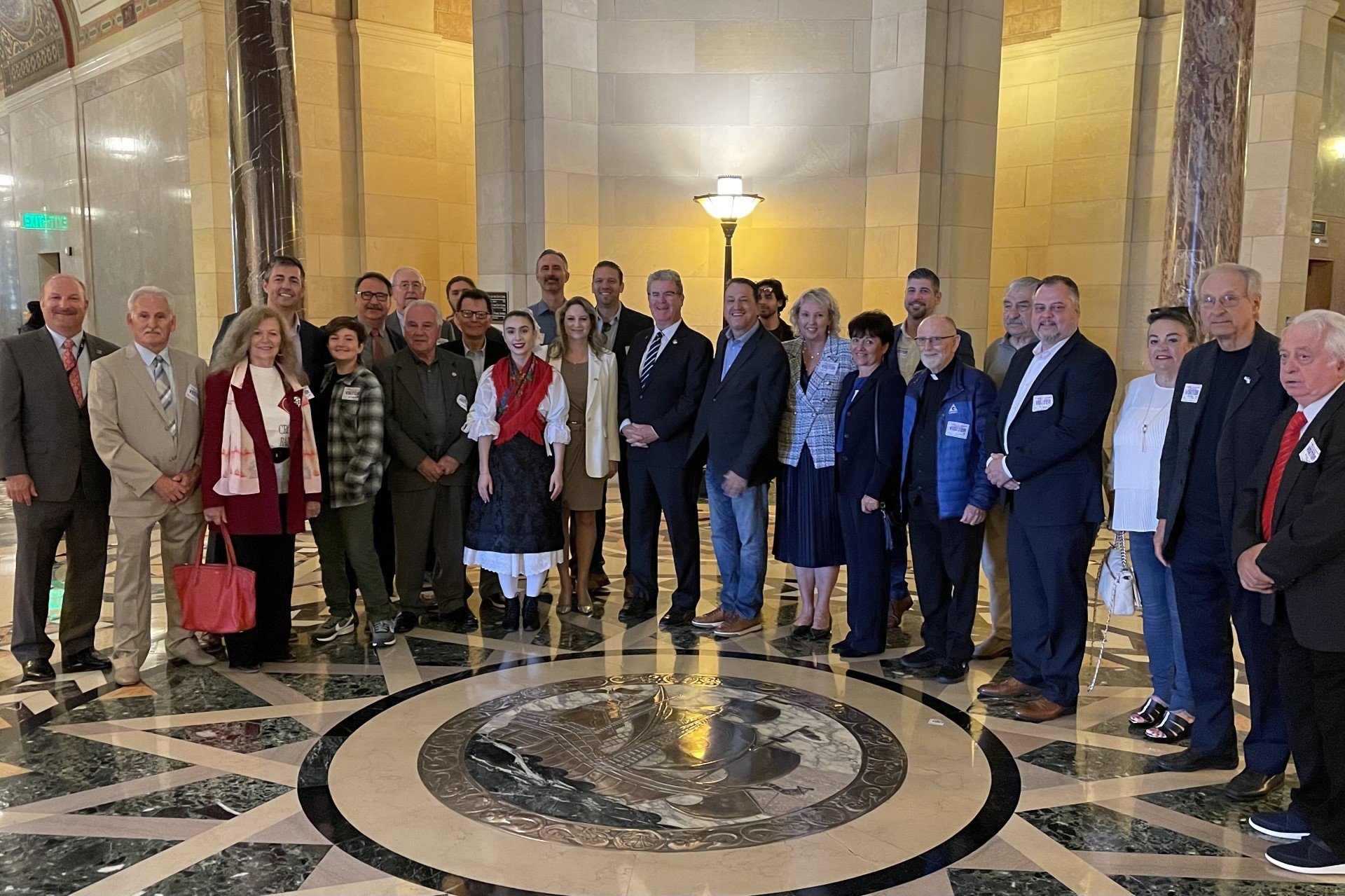
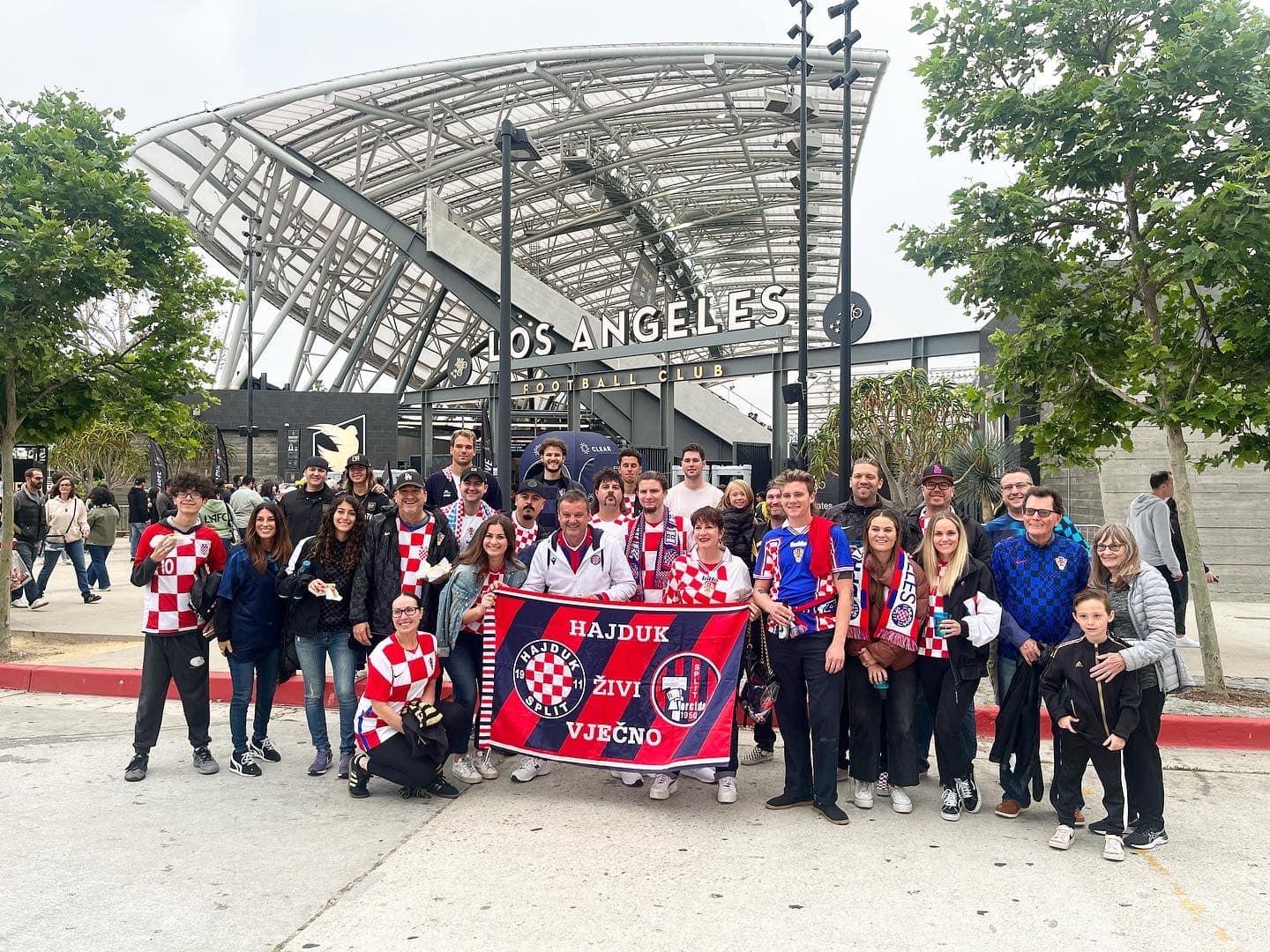
At the official announcement of the Croatian Cultural Week in the Los Angeles City Council, City Councilman Tim McOsker presented the Proclamation of the Croatian Cultural Week to the Consul General of Croatia in Los Angeles, Renee Pea. This event was attended by members of the Croatian community of Los Angeles, presidents of Croatian associations and societies, as well as don Ivan Jordan, pastor of the Croatian parish of St. Ante in Los Angeles and don Ivan Gerovac, priest in the church of St. Mary of the Sea in San Pedro, and members of the Organizing Committee of the Croatian Cultural Week, including Jack Barić, the Committee's chairman.
In his speech, Councilor McOsker emphasized the importance of the Croatian community in Los Angeles, especially in its suburb of San Pedro, where they had a great influence on the development of the port and the fishing and processing industry, noting: "Croatian culture is deeply rooted in the history of the port area of Los Angeles. Although we gather every four years to celebrate and cheer on their amazing soccer team during the World Cup, it is the weekly and monthly gatherings that make their impact so strong in our community. San Pedro is home to one of the largest populations of Croatian immigrants in the United States with 35,000 residents." In her speech, the Consul General emphasized the role played by our Croatian community in Los Angeles, which is successful and well integrated, but they still cherish and preserve the Croatian language and culture, customs and traditions, for which she thanked them. She pointed out that June 9, 2023 will be the 30th anniversary since Los Angeles became Split's Sister City. After the speeches, a Croatian singer artist Rebecca Posavec sang two Croatian songs.
On the same day, at a Fish luncheon at the Dalmatian Club in San Pedro, Janice Hahn, Chair of the LA County Board of Supervisors, which represents 10 million people, presented Consul General Pea with the Los Angeles County Commendation declaring Croatian Cultural Week, saying: "I am proud to represent one of the largest Croatian-American communities in the country. Croatian immigrants helped shape San Pedro as we know and love it today". A charter was also presented to the Consul General by Steven Bradford, Senator of the State of California 35 District, as well as Mike Gipson, Assemblyman of California’s 65 District.
This week will culminate on Sunday, May 28, with the Croatian Independence Street Party in San Pedro, which will take place at 22nd Street Park, located at 140 W. 22nd St. starting at 11:30 a.m. There will be an energetic atmosphere filled with music, dance, and an array of Croatian cultural performances.
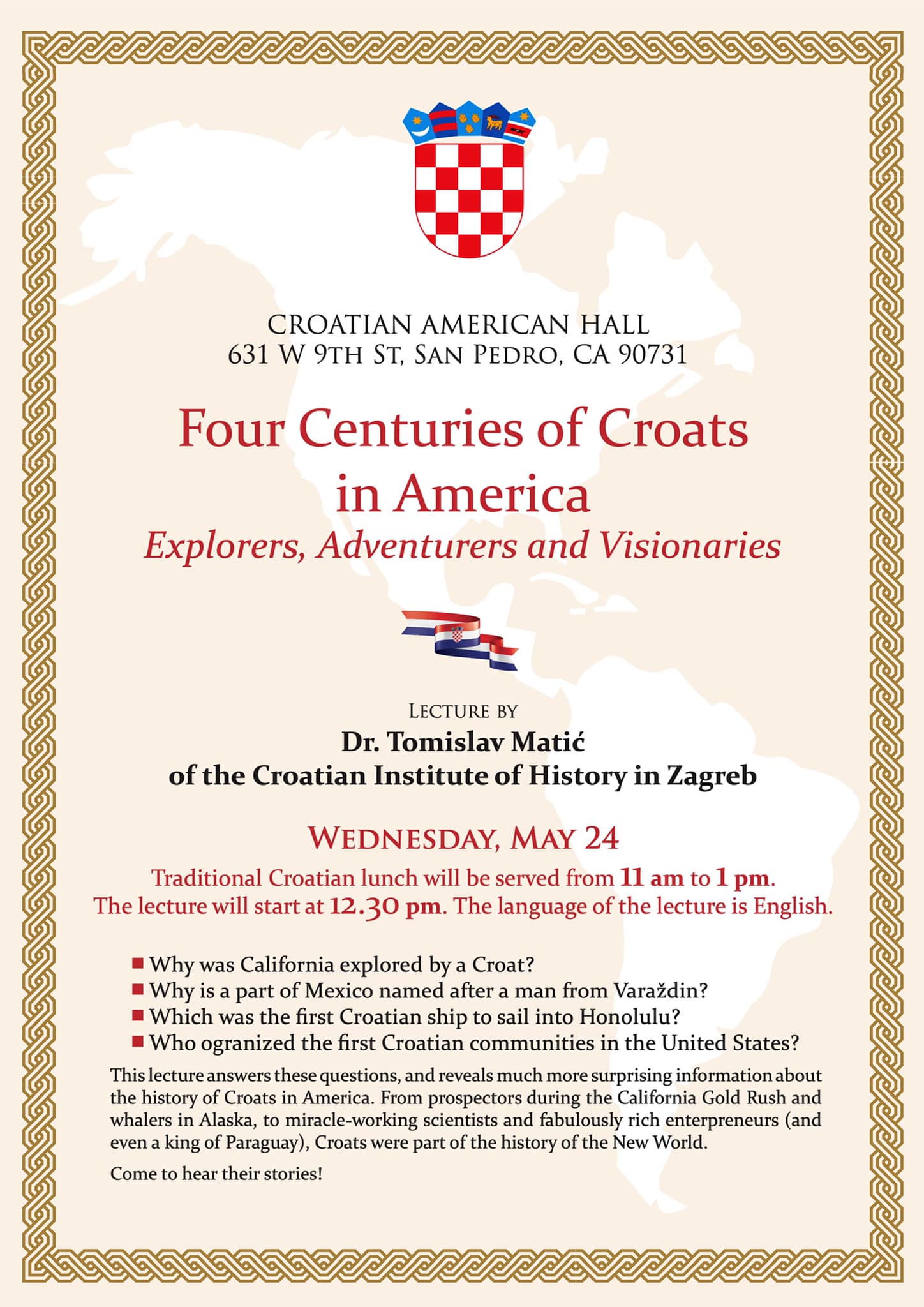
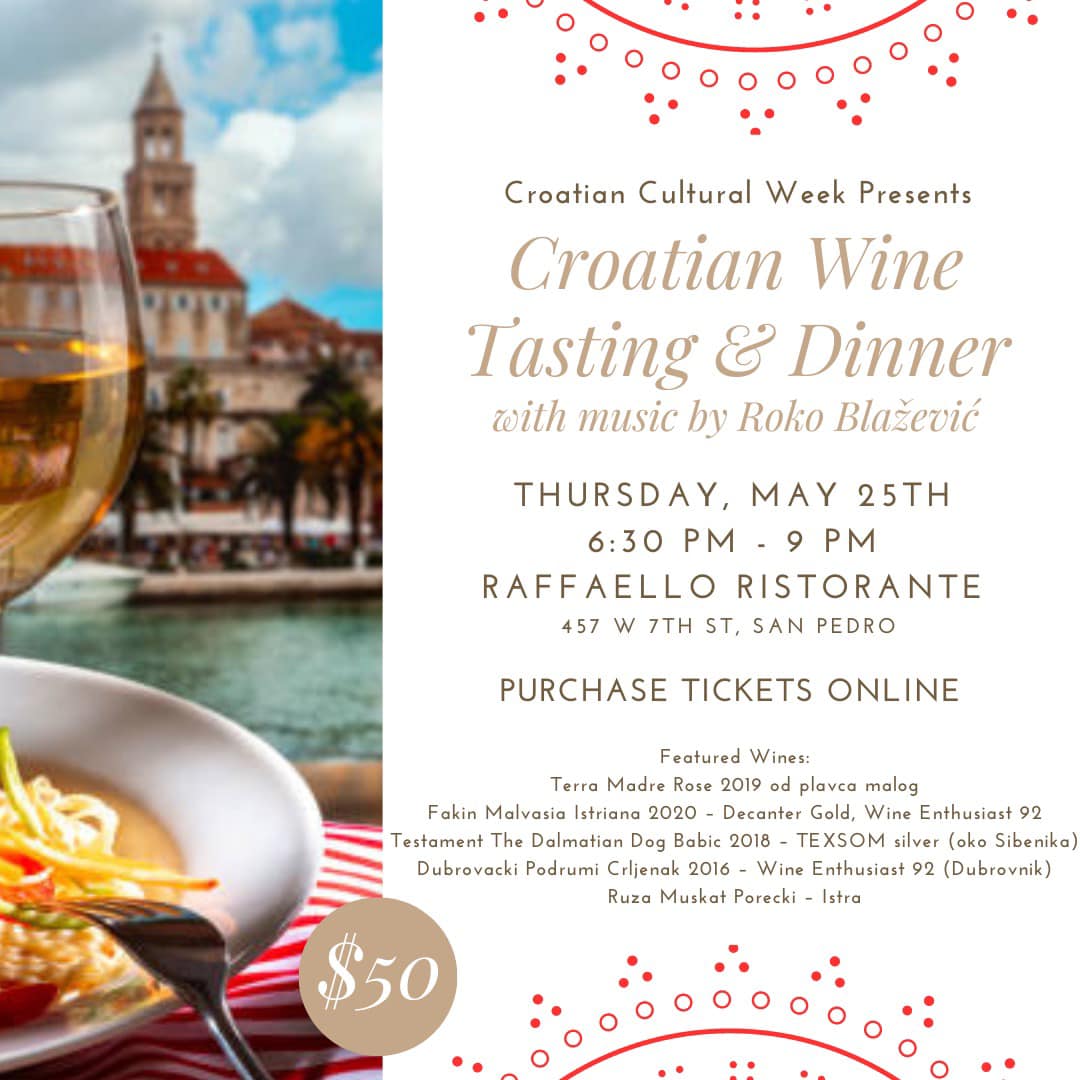
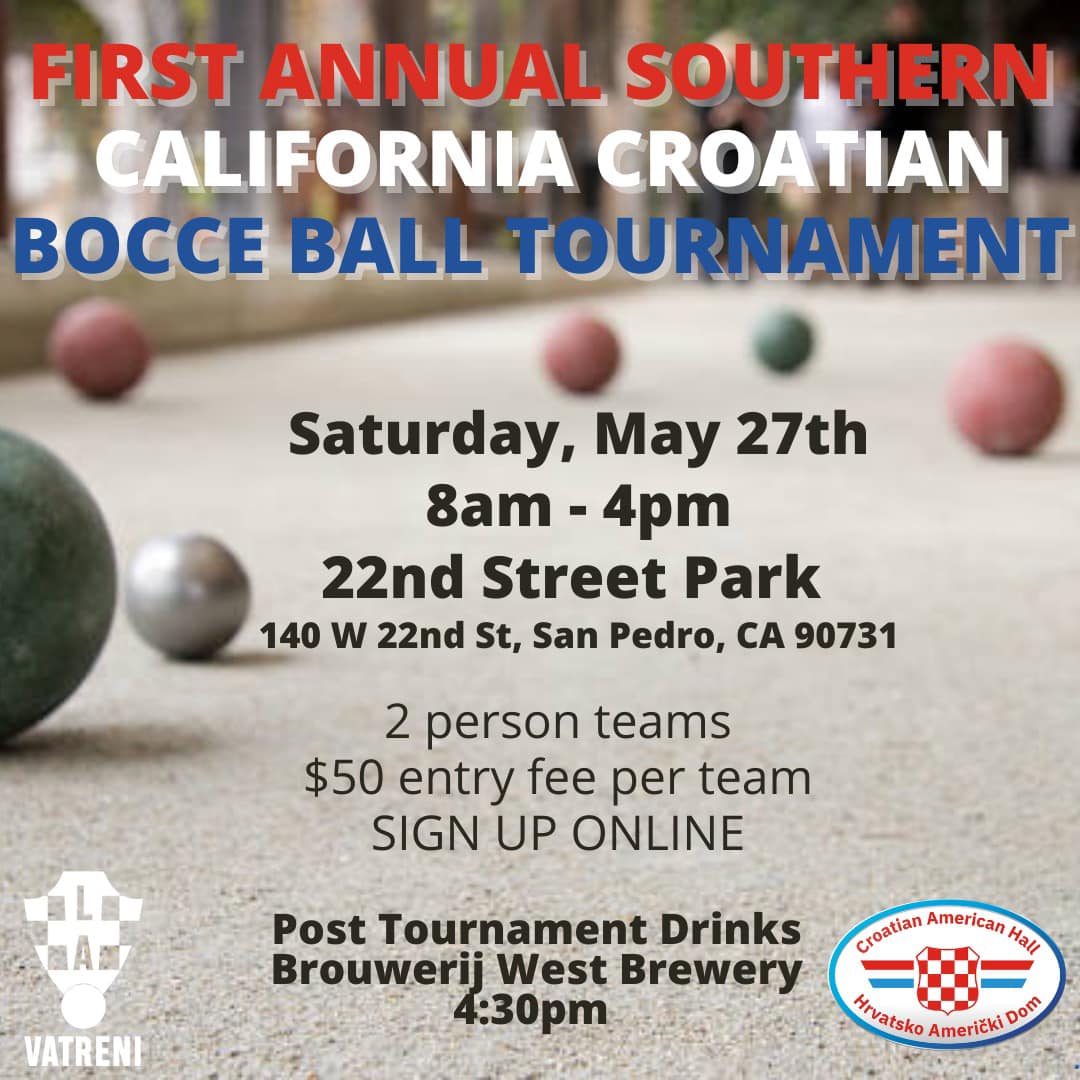
Photos credit: LA Vatreni
For more, check out our lifestyle section.
Smoqua Queer Festival Rijeka: A Safe Space for Diversity
October 2, 2021 - The fifth edition of the Smoqua Queer Festival Rijeka is set to celebrate diversity from October 7-9.
Culture, art, and interesting content mixed with the advocation of rights for sexual minorities, citizens and visitors of Rijeka are once again in for a queer culture treat as the fifth edition of the Smoqua festival of queer and feminist culture will take place from October 7-9.
''With our hearts full, we're announcing the 5th edition of Smoqua that will win you over with its diverse content, inspiring people, and warm atmosphere. LORI, together with our dear partners PaRiter and GSG, invite all persons of goodwill, an open mind and heart to join us in the new edition of joint reflection, conversation, mingling…'' says the Facebook description of the event.
As in previous years, Smoqua reminds visitors that they are offering a safe space for people that are different. For those that don't fit into gender and sex norms and boxes, but also those who are in need of open conversations, discussions, gaining new knowledge, and are curious about new realisations.
The 2021 edition is lead by a theme titled ''Uncharted territories''. In that spirit, Smoqua's events will explore the boundaries of the physical and the material within patriarchal structures, with the question of the body being the starting point. Activists and artists from all over Europe (the UK, Greece, Serbia, Poland, and France, to name a few) will participate in the programme. You canssee the whole programme as well as the venues and locations of all of the events here.
''Let’s dive together into queer and feminist culture through performances, an exhibition, discussions, workshops, lectures, a theatre play, the Queer-UP! Party and other various activities,'' says Smoqua.
The main organiser, the LORI association, is a Lesbian Organisation from Rijeka. Founded way back in October 2000, the organisation aims to inform and sensitise the public to accept sexual and gender minorities, as well as eradicate prejudice and homo/bi/transphobia. In a nutshell, their aim is to totally eliminate discrimination based on sexual orientation, gender/sex identity and/or gender expression and secure full equality under the law.
As TCN previously wrote, Croatia is rated to be the 39th most popular country for LGBTQ visitors in the world. In the summer of 2021, a famous actor and gay icon, Neil Patrick Harris visited the lovely Croatian Island of Hvar. 2021 and 2020, however, were also sadly noted for homophobic incidents.
From burning a gay effigy during an Imotski carnival in February 2020, a physical attack in Zagreb's Maksimir Park against a gay man, as well as several incidents against the participants during the 2021 Zagreb Gay Pride, Croatia isn't without its issues in this regard.
Learn more about LGBT rights in Croatia and what LGBT tourists should know on our TC page.
For more about LGBT in Croatia, follow TCN's dedicated page.
Zagreb Subversive Festival 2021: Progressive Films and Discussions in October
September 28, 2021 - The Zagreb Subversive Festival 2021 will present movies and discussions on alternative, progressive solutions to burning global issues throughout October.
After the iconic Kino Europa (Europa Cinema) in Zagreb's centre closed down (despite huge support for it to remain, as well as protests), many cultural festivals that called the venue their home weren't sure where they would continue their cultural programmes.
However, many programmes successfully moved on, and the Zagreb Subversive Festival is no exception. The 14th edition of this progressive culture event is making a return to Zagreb and will last from October 3-23.
The Tuškanac Cinema, the Cultural Informative Centre (KIC), the Prosvjeta Serbian Cultural Centre (SKD Prosvjeta), and the Miroslav Krleža Institute of Lexicography joined forces to host the programme. Additionally, the online Volimdokumentarce.net (Ilovedocumentaries.net) programme will live stream online for those unable to attend the events in person.
''The Zagreb Subversive Festival 2021 is a multi-disciplinary platform inside which political theory and film join forces to shake up the status quo, identify the aesthetic of resistance and nurture a more radical approach to film, theory, and practice. We're interested in the potential transformation of our neoliberal daily lives, and the role art and culture could play in this endeavour,'' writes the official website of the Subversive Film Festival.
The festival began back in 2008, marking the 40th anniversary of 1968 global protests, and since then, it has evolved into one of the most important progressive festivals in the region. The festival is split into two sections: The Subversive Film Festival and the Subversive Forum.
The film part showcases movies that deal with topics of social injustice, social change, women's and minority rights, LGBTQ+, student and workers' issues and movements, as well as post-colonial heritage. The screenings also have a competitive nature due to the ''Wild Dreamer'' Award for the best feature, documentary, and short film categories.
The Subversive Forum portion of the festival holds conferences that present ''tools for the deconstruction of the offered normalised story about the world'', as well as the articulation of a possible alternative reality and its foundation.
Noted international movie directors, philosophers, social scientists, and activists such as Oliver Stone, Toni Negri, Slavoj Žižek, Michael Hardt, and many others have attended and participated in the Zagreb Subversive Festival over the years.
The 14th edition has a central topic, ''A Post-COVID Democracy: The Ethics of Fight and Solidarity Poetics'' and thirty movie titles are confirmed for the programme, which will be filled with exhibitions, lectures, and discussions that will stretch throughout the month of October.
Learn more about Zagreb in our TC guide.
For more about culture in Croatia, follow TCN's dedicated page.
Jasmina Krajačić Closeups Exhibition: Questioning Consumerism Through Pop Art Portraits
September 18, 2021 - The Jasmina Krajačić Closeups exhibition looks at our identities and criticises consumerism in a visual dance of colours and geometry. The exhibition can be seen from Sept 23-28 at Galerija Siva in Medika, Zagreb.
Pop Art playfulness filled with colours and details is a recognisable signature of Jasmina Krajačić. This Zagreb-based artist was born on July 26, 1968, and after graduating from the Applied Arts School in Zagreb, she moved to the Zagreb Academy of Fine Arts, where she earned her degree in 1992.
Her contemporary work, which takes an obvious interest in geometry and design, has taken a lot of its influence from England's punk movement and pop culture.
Krajačić's newest exhibition, entitled ''Closeups'', is set to be held at Galerija Siva, and its opening is scheduled for September 23, at 20:00, and the exhibition will last and be available to the public every day apart from Sunday from 17:00-20:00 all the way until September 28. The Jasmina Krajačić Closeups exhibition includes portraits, pop art recycling, and the transformation of original photos. These photos are both of famous people (such as David Bowie, Amy Winehouse, Debbie Harry from the band Blondie, and more), of unknown people and also Krajačić's own self-portrait.
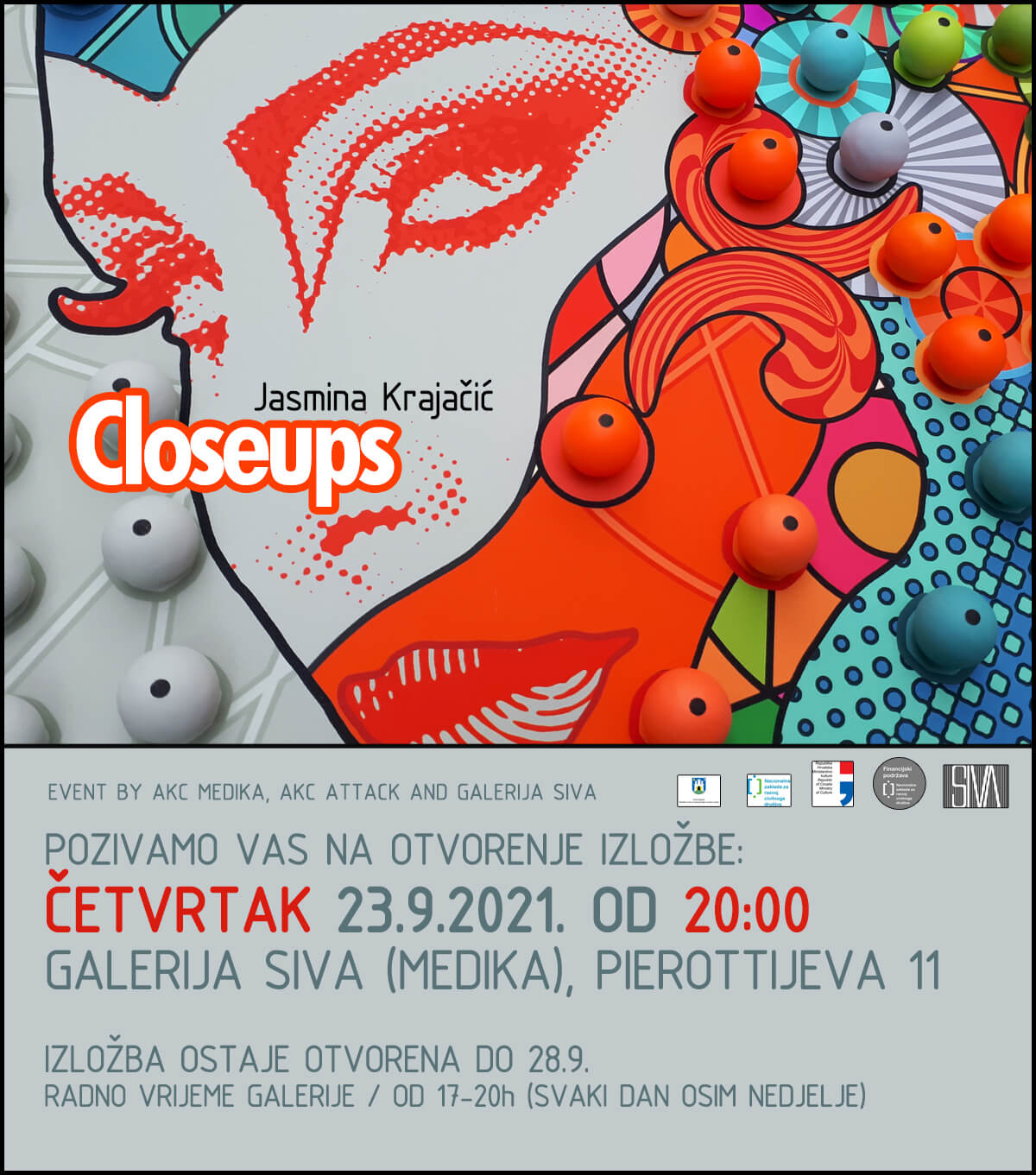
Invitation to the Closeups exhibition © Jasmina Krajačić
Tatjana Bezjak, a Croatian sculptor and writer, wrote a review of Krajačić's work which is going to be featured in the upcoming exhibition. She rated Krajačić's sixteen portraits as playful, attractive, full of colours, and invitingly cheerful. At first, Bezjak points out that these attributes are disturbing, but they bring out calm inside of us when we look at these close-ups and decipher some of the messages behind Krajačić's work ourselves.
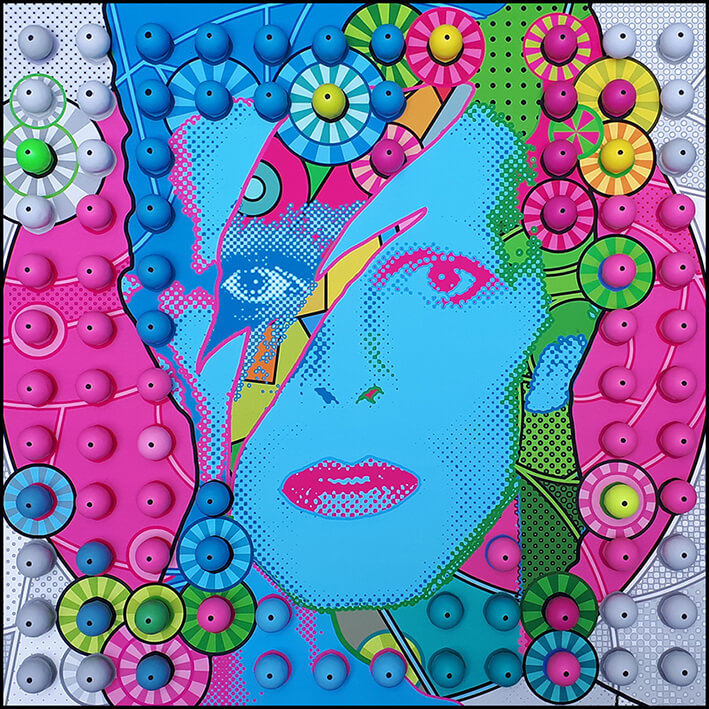
David Bowie © Jasmina Krajačić
''Close-ups are a look in the mirror, in the face of contemporary society, a society of consumerism and spectacle, deranged values and identity crises. Close-ups do not differ by the status, success or popularity of those in the portraits. Whether we belong to the anonymous crowd or to the shiny world of fame and celebrities, with commodities and identities, all of us are deceiving ourselves, without exception. While the invisible hand relentlessly serves new needs and practices, moving some final goalpost, some ultimate fulfillment is always further behind the horizon. It is almost impossible not to reach it, again and again“, writes Bezjak.
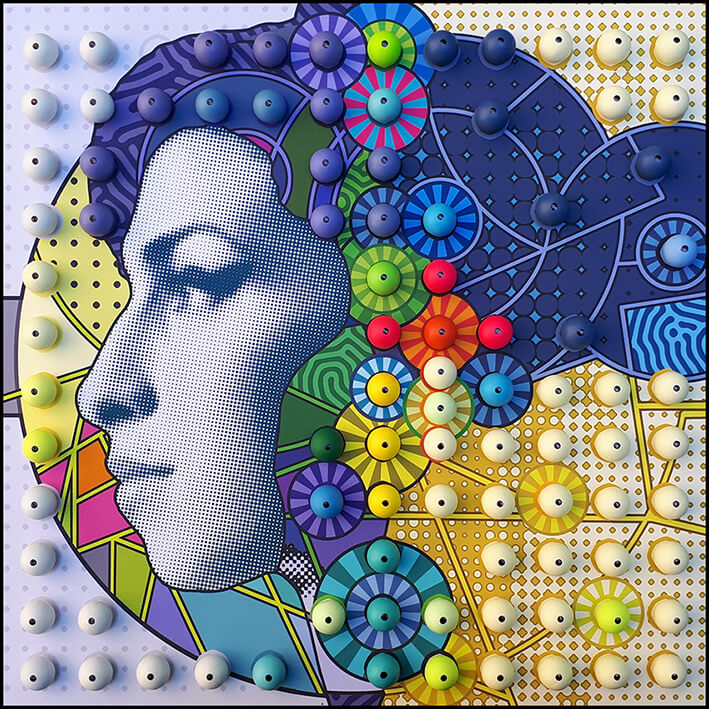
Amy Winehouse © Jasmina Krajačić
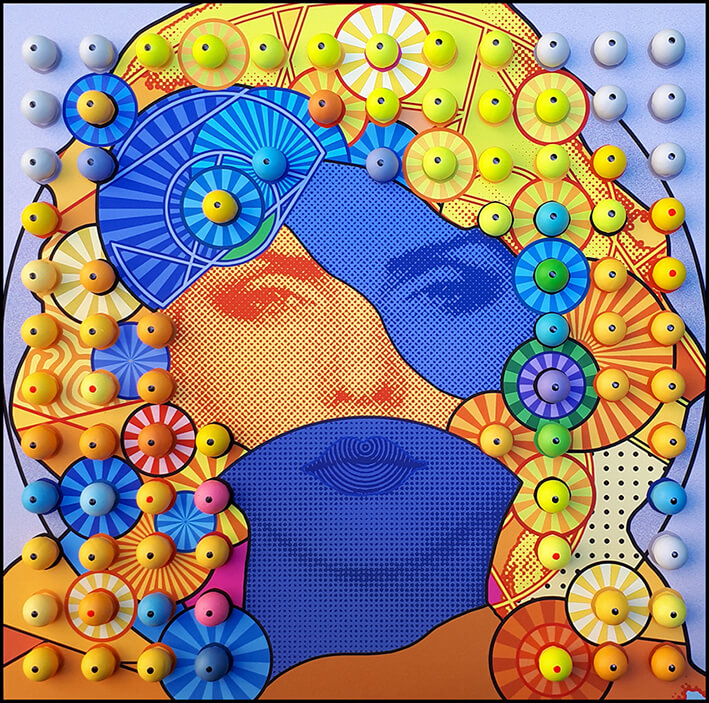
Blondie © Jasmina Krajačić
The criticism of the neo-liberal paradigm and constantly chasing profit consumerism is evident even in the name sof Krajačić's pictures. Titles that will be showcased in the exhibition such as ''Buy Passion'', ''Buy Patience'', ''Buy Empathy'', ''Buy Eternity'', ''Buy Wisdom'', ''Buy Dignity'', ''Buy Fearlessness'', ''Buy Affection'', accompanied by the eye-candy-like geometrical game of circles and colours, constantly force us to challenge our own identities.
The question posed to our identities is not necessarily difficult to answer with a simple yes or no, because of sheer complexity, but rather because it is a question we don't want to answer honestly: Are our identities genuine or bought?
Learn more about Croatian Art Galleries in Zagreb, Dalmatia, Istria & Slavonia on our TC page.
For more about art in Croatia, follow TCN's dedicated page.
Museum Practicum Project: Curator and Art Education by Zagreb Contemporary Art Museum
September 13, 2021 - The Museum Practicum Project by the Museum of Contemporary Art Zagreb (MSU) will teach 30 selected young people aged 15-25 about the professions of curator and other museum jobs, as well as contemporary art while giving them a chance to promote their own work.
With the many good practices of additional education and popularising scientific and educational fields for young people (such as the SCOPE Project by the Višnjan Observatory), the Museum of Contemporary Art (MSU) in Zagreb is also making its contribution in line with their field. Their Museum Practicum project that started on September the 1st and will last until June the 30th, 2022, wants to introduce young people aged 15-25 to contemporary art, and to the basics of curator practices and other types of museum work. Thirty selected people will be mentored by the project team, partners, and hired experts and artists.
''The work with these young people will be held via online platforms, and it will include moderated conversations, mentorships, and co-creating virtual exhibitions from MSU holdings and exhibitions of their own work in the medium of photography created within the project,'' says MSU's website.
In this way, the project wants to provide young people with the opportunity to develop their own creative skills and knowledge through a virtual space and open space for both their expression and self-promotion.
''Even though curriculum reforms have already started, the need for young people interested in developing their social and creative skills is strong, as the education system does not provide that enough. Additionally, there is the insufficiency in regional representation and the limited participation opportunity of young people in art and culture activities due to the lack of extracurricular activities, all of which has been additionally worsened by the COVID-19 pandemic,'' says MSU, addressing the importance of the Museum Practicum Project in light of the many issues faced by Croatian schools.
The further recognition of the importance of the project is evident by the financial support of the EU from the European Social Fund, and the total budget of the project is 201,092.83 kuna.
The Museum Practicum Project and its wider goal of educating young people in preparing virtual exhibitions is similar and in line with the Women and Technology Program at the Nikola Tesla Technical Museum, about which TCN previously wrote. Add in the overall challenges in the Croatian education system, from a lack of extracurricular activities to the previously mentioned problems of the straight A epidemic, and projects like these seem like welcome solutions to help young people recognise their worth and find passion in their lives.
Learn more about Zagreb on our TC page.
For more about education in Croatia, follow TCN's dedicated page.
Ministry of Culture Shortlisted For World Literacy Awards
ZAGREB, 8 Sept, 2021 - The Croatian Ministry of Culture and Media has been shortlisted for the World Literacy Awards in the category "Significant Contribution to Literacy by a Nation" for its "Year of Reading" campaign, and the laureates will be declared on Wednesday evening on World Literacy Day.
The World Literacy Awards are annual recognitions given to valuable initiatives around the world that promote literacy and education, the ministry said on Wednesday.
They are divided into several categories and given to individuals and organisations for their outstanding endeavours that promote literacy. The laureates are selected by a panel of judges consisting of eminent leaders from across the globe, including literacy and literature experts, Nobel Literature Prize recipients, and award-winning authors.
Croatia has one more candidate who has been shortlisted, Prof. Anita Peti-Staničić, who has been nominated in the Academic Award category.
Her work on reading literacy consists of two tiers, both equally important and complement each other. The first is her publishing activity. The second is her activist work on putting reading literacy in the centre of interest of librarians and teachers at all school subjects.
The government declared 2021 The Year of Reading. The declaration of The Year of Reading is part of a measure from the National Strategy to Promote Reading, adopted in 2017.
International Literacy Day is an international observance, celebrated each year on 8 September, declared by UNESCO on 26 October 1966 at the 14th session of UNESCO's General Conference. It was celebrated for the first time in 1967.
For more about politics in Croatia, follow TCN's dedicated page.
Croatian World War 1 Memory: Research Project Investigating Memory and Heritage
September 7, 2021 - In a pool filled with social research supported by the Ivo Pilar Social Research Institute, Liljana Dobrovšak leads a project to explore the Croatian World War 1 Memory. The heritage and sites of memory of this horrible historical event as well as political and social background interpreting those events will be displayed on an international round table on September the 9th and 10th, 2021.
As the past always keeps inviting us back to learn something new the history books overlook, events such as World War 1 require revisiting.
Enter ''The First World War in the Culture of Memory. Forgotten Heritage'', a scientific project led by Ljiljana Dobrovšak to dig deeper into the collective memory of this dreadful war.
''The aim of the research is to initiate a scholarly debate on the ''cultural memory'' of WW1 in Croatia based on newly acquired knowledge in order to determine its causes and why it contributed to the contemporary social phenomenon of ''forgetfulness'' related to WW1 in Croatia.
The objective of this research is to examine WW1's ''cultural memory'' in Croatia back during the time of the Kingdom of Slovenes, Croats and Serbs/Yugoslavia (and in relation to the wider region and the rest of Europe) through the systematic investigation of ''memory politics'' (legal framework), ''sites of memory'' marking practices and ''commemorative practices’' ''during the war and in the interwar period,'' explains the Ivo Pilar Social Research Institute on its website.
This piece of research had two goals. The first is concerned with investigating and recording what the research calls ''sites of memory'', and to fully determine circumstances of their creation, establishment or even, in some cases, the disappearance of those places. This was done by analysing and studying actions and/or attitudes of the Croatian institutions, military and civilian associations next to the central Belgrade institutions, military and civilian organisations towards ''sites of memory'' related to the WW1 in Croatia.
The second goal concerns situating these ''sites of memory'' in a wider socio-political context. This way, researchers can investigate how, at the time, the Yugoslav legal framework of memory politics is developed towards its formation through commemorative practices on its territory, as well as, attitudes of the Yugoslav state and central institutions in Belgrade towards Croatian citizens as members of the Austro-Hungarian Army who died fighting for the Austro-Hungarian Monarchy.
''The overall result of this predominantly historical research project which is multidisciplinary in character is not only expanded knowledge about neglected and insufficiently researched Croatian cultural and historical heritage but more importantly; the acquired knowledge which enables the scientific and cultural integration of the Croatian WW1 memory, more precisely cultural memory, and its valorised historical heritage into the wider socio-historical European context,'' concludes the Ivo Pilar Social Research Institute.
The project started in 2020 and will last until 2023. However, even now, the research has moved far enough to hold an international scientific round table regarding the matter.
The round table lasting from September 9-10 will see lectures from scientists from Slovenia, Serbia, Bosnia and Herzegovina (BiH), and Croatia.
The event will be held at Ivo Pilar Social Research Institute's multimedia hall in Zagreb, at Marko Marulić Square 19. However, due to the current epidemiological measures, the number of seats at the hall is limited. But never fear, as you can follow the discussions and lectures live via a Zoom meeting (Meeting ID: 892 6457 0158 Passcode: 316547).
Read about Croatian politics and history since 1990 on our TC guide.
For more about history in Croatia, follow TCN's dedicated page.
KUF Festival 2021: Circus Takes to Zagreb Streets
September 3, 2021 - The KUF Festival 2021 is the third edition of a Cultural Street Festival that brings the circus to the streets of Zagreb. Organised by the Cirkorama collective, you can enjoy the crazy acrobatics, hilarious performances, and more in the following September weekends.
The Cirkorama collective has been known in Croatia for years for promoting the art of circus through various types of education, shows, street performances, and projects. There will certainly be a lot to do while juggling all the events in Zagreb over the September weekends to come.
These events will all be part of the KUF-Cultural Street Festival, which is now in its third edition, and will bring street art performances to all parts of Zagreb, starting this weekend (September 4-5) in Sopot. After that, it will follow with performances in the neighbourhoods of Vrbik (September 11-12), Mažuranac (September 12), Borongaj (September 18-19) and concluding in Vrapče (September 18-19). This is an excellent way to continue on the same path after Zagreb's handful of events in August.
''The Cultural Street Festival is dedicated to street performances, local artists, and the local population. Its goal is to present the art of urban street culture and circus art throughout Zagreb's neighbourhoods. Therefore, the festival this year, just like in the previous ones, will travel to the city's neighbourhoods providing its residents circus-like street shows for all ages,'' said the festival organisers in a press release.
On a mission to enrich the City of Zagreb with cultural content, the ease of hitting the right street to enjoy the show is paired well with ticket-free entertainment.
The founders of Cirkorama are indeed pioneers of circus arts in Croatia, as they were the first to bring juggling and stilt walking to Croatian cities. These forms of entertainment on the streets were soon followed by acrobatics on silk and much more.
Projects promoting the modern circus with partners such as the Red Cross were aces for Cirkorama to show that the joys of the circus aren't only limited to specific locations and inside tents. With circus shenanigans being much more enjoyable than Zagreb's usual traffic accidents, head over to the designated areas to enjoy it this month.
What better way to get hyped for September than by checking out the bit of action in this video:
Learn more about Cirkorama on their Youtube page, featuring performances and a serious discussion on the art of circus.
Learn more about Zagreb on our TC page.
For more about culture in Croatia, follow TCN's dedicated page.
Croatian Broadcast Exhibition: Zagreb Technical Museum Hosting Event Until October 12
August 26, 2021 - The Croatian Broadcast Exhibition hosted by Zagreb's Nikola Tesla Technical Museum (TMNT) offers visitors a chance to learn more about the rich history of radio and television in Croatia which led to the diverse multimedia world of today.
Named after the famous scientist Nikola Tesla, the Nikola Tesla Technical Museum (TMNT) continues to showcase the history of invention and technology. Since June, all the way up to October 12, the Museum has been and will continue to host an exhibition called ''Transmitter and connections – 95 years of broadcast in Croatia'', authored by TMNT's curator Goran Rajič. Marking 95 years of radio and 65 years of television in the country, the display is supported by Transmitters and Connections d.o.o.
''There is no doubt that broadcast, embodied in two iconic phenomena – radio and television, marked the 20th century and made way for today's dominance of multimedia, evident in the overall networking and convergion of communication technologies,'' reads the TMNT website.
They added that radio and television made significant contributions to society, from building democracy and pluralism to being symbols of mass consumer and pop culture.
''With a selection of representative objects from the Nikola Tesla Technical Museum and objects used in Transmitters and Connections d.o.o., we're paying tribute to the significant anniversary of broadcasting on Croatian soil, as well as the almost century-long effort of Croatian work and intellectual efforts in its quality,'' explained the TMNT website.
This selection includes various radio and television transmitters, televisions and radios used in Croatia, also accompanied by photos of the most significant locations across the country where transmitters are situated. In addition, the exhibition presents visitors with data that provides less known facts on the size and branching of the transmitters, as well as on the challenges of maintaining the broadcast network.
TMNT also reminds its readers that the first radio transmission in Croatia was achieved on May 15, 1926, by the hard work of the Radio Club Zagreb, and was produced by the German Telefunken company from Berlin. The same date, but this time in 1956, saw the celebration of the 30th anniversary of the radio on modern Croatian territory. Antennas placed on Sljeme, Medvednica's mountain top, saw the very first television broadcast. The most recent technological advancement in the Croatian broadcasting world was seen in 2017 when 16 radio stations started broadcasting on a digital signal.
Learn more about Croatian inventions & discoveries: from Tesla to Rimac on our TC page.
For more about Croatian history, follow TCN's dedicated page.
Croatian Poet Hanibal Lucić: Renaissance Genius from Hvar
August 14, 2021 - Meet Croatian poet Hanibal Lucić, one of the most respected poets from the country's renaissance period and a noble man from the island of Hvar. This is his story.
The richness of Croatia's heritage is evident not only in its many breathtaking buildings, statues and sights but also in its literature. Sadly, Croatian literature doesn't attract as much global attention as it should when compared to the global impact and various language translations that names such as Shakespeare enjoy. Not to mention antic Greek poets and writers, Italian authors such as Dante, and the list goes on.
Things are changing for iconic writers from Croatian history, such as 20th-century writer Miroslav Krleža as well as many of the modern, still active writers, thanks to the Croatian Literature site powered by the Croatian Ministry of Culture.
Prose writing doesn't have too many challenges for a professional translator when it comes to shifting the story from its original language to another, but you can be sure poetry is another story. If you read an English translation of ''The Flowers of Evil“ by Charles Baudelaire, instead of the original French version, did you really read Baudelaire or an author who made an adaptation of the poem into English in as much as was possible?
Either way, not much work done by Croatian poets is widely translated and known globally, but the Croatian poets themselves are known, and their former residences venues carrying their names and statues dedicated to them are part of the cultural offer Croatian destinations have to offer to their visitors.
In Hvar town, not too far from Veneranda, where the former church and famous former Hvar weather station lies, you can find a bust of a bearded man facing the Adriatic sea, and his eyes look as if they have that filter of lyricism, that poet-style introspect in observing the world. That should come as no surprise as the portrayed citizen of Hvar is non-other than Croatian poet, Hanibal Lucić, a nobleman from Hvar.
The exact date of his birth in 1485 isn't clear, but his date of death, December 14, 1553, is well recorded. The Croatian poet Hanibal Lucić was a renaissance poet as well as a playwright who authored the first secular Croatian drama titled ''Robinja'' (the slave woman). He served the Hvar Municipality back in the time when it was part of the Venetian Republic as a judge and a lawyer. His writings feature the Croatian Čakavski dialect (which distinctly uses the word ča for ''what''), and he wrote love poetry under the heavy influence of the legendary love poet Francesco Petrarca. Lucić was notoriously self-critical, and he even burned his work. Thankfully, his son saved his work and it was published in 1556, after his death.
Hanibal Lucić bust © Nina Lelas
In 2012, the National and University Library in Zagreb (NSK) posted an article in memory of Lucić, stating that he was the greatest writer of Croatian Renaissance poetry.
''We can gather from his literary works that he was exceptionally well-acquainted with classical literature, the Croatian Glagolitic and oral tradition, and the contemporary Italian and Croatian writing of his time. In his poetry, Lucić celebrated his love for women and for female beauty. In their aesthetic quality, Lucić’s poems represent a true masterpiece of Croatian renaissance lyric poetry. He describes beauty and love in the tradition of Petrarch, at the same time drawing on the oral tradition of Croatian love poetry,'' wrote NSK.
His poem „Jur ni Jedna na svit vila“ (No Other Nymph Upon This Earth), one of Lucić's most well-known poems, is an obligatory poem to read in the Croatian education system. You can learn more in this English version of a science paper by Tomislav Bodgan.
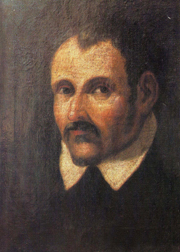
Portrait of Hanibal Lucić © National and University Library in Zagreb (NSK)
On Hvar, his summer residence still stands, and it's open to tourists to visit as its now the headquarters of the Hvar Museum.
''His summer house, the headquarters of the Hvar Museum, is a well-preserved example of the country houses of the Renaissance period, but with clear Gothic influences. Included in the museum is a reception room dedicated to the memory of Hanibal. The museum is also home to the local branch of the Croatian state archives. The opening hours are as follows: 09:00 -13:00 and 17:00 – 23:00 in summer, 10:00 – 12:00 in winter (by appointment),'' wrote Paul Bradbury for Hvar's dedicated Total Croatia page.
So, when in Hvar, do find time to visit the house but also don't forget to visit his bust and seek one of his pick-up lines that can help your banter with that pretty girl on the beach.
Learn more about Hvar on our TC page.
For more about Croatian history, follow TCN's dedicated page.


